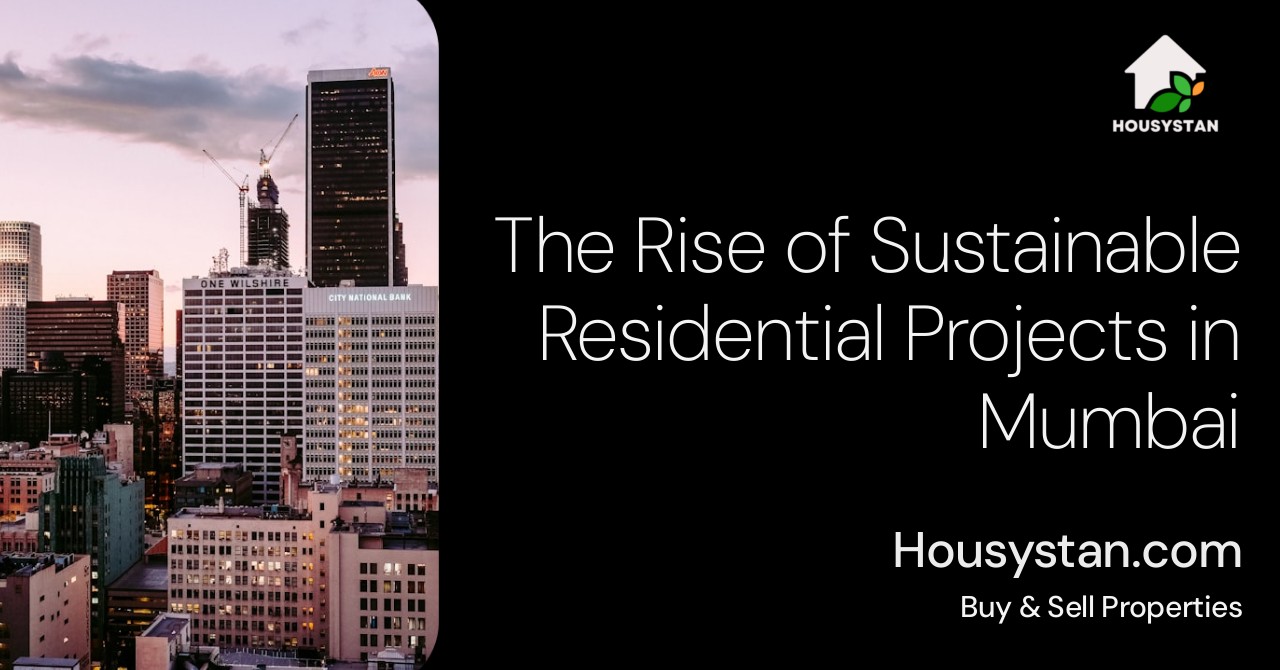The Rise of Sustainable Residential Projects in Mumbai
Read latest blogs and articles from Housystan

The Information mentioned here was last updated on:
29/1/2026The emergence of sustainable residential projects in Mumbai marks a significant shift in the city’s real estate landscape. As India’s financial hub, Mumbai faces unique challenges such as rapid urbanization, limited land resources, and increasing environmental concerns. Developers and homebuyers alike are now prioritizing eco-friendly living solutions to address these issues while enhancing quality of life. The demand for green homes in Mumbai is driven by a growing awareness of climate change, the need for energy efficiency, and the desire for healthier living spaces.
Modern sustainable residential projects in Mumbai incorporate innovative technologies and design principles that reduce environmental impact. Builders are implementing energy-efficient lighting, rainwater harvesting systems, and solar panels to minimize reliance on conventional power sources. Incorporating native vegetation and green roofs helps regulate temperature, improve air quality, and create tranquil urban sanctuaries within Mumbai’s bustling neighborhoods. Water conservation is also a key focus, with wastewater recycling and low-flow plumbing fixtures becoming standard in many new developments.
Beyond environmental benefits, these eco-conscious homes offer long-term financial savings for residents. Lower utility bills, reduced maintenance costs, and potential government incentives make investing in sustainable properties a smart choice for families and individuals. Additionally, as regulatory bodies in Mumbai introduce stricter green building codes, sustainable projects are positioned to appreciate in value, attracting both end-users and savvy investors.
- Verified Tenants/Buyers
- Unlimited Property Listing
- Zero subscription/charges fee
The city’s top builders are responding to this demand by launching projects adhering to IGBC and LEED certification standards, ensuring that homes meet global benchmarks for sustainability. Locations such as Powai, Andheri, Borivali, and Navi Mumbai are witnessing a surge in green residential complexes, each offering amenities like organic waste composting, electric vehicle charging stations, and ample green spaces.
Choosing a sustainable home in Mumbai not only contributes to a healthier environment but also aligns with the city’s vision for a greener, smarter future. As eco-friendly living becomes mainstream, Mumbai stands out as a leader in sustainable urban development, setting new standards for metropolitan cities across India.